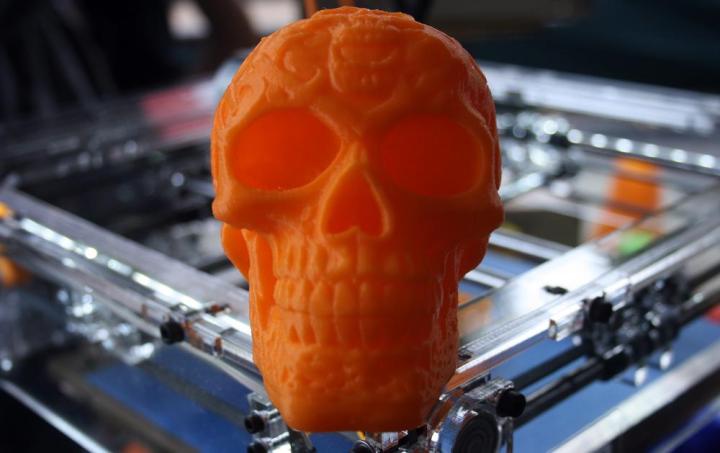
Yesterday, MakerBot announced the availability of its new Digitizer 3D Desktop Scanner. The concept is definitely a cool one: Take an object that’s up to 8 inches tall and 8 inches wide (and up to 6.6 pounds), place it on the scanner, and allow the Digitizer’s lasers to scan the object and output the 3D code to your 3D printer’s software. It’s basically reverse 3D printing.
However, as Forbes pointed out in a story today, it seems you can’t just go around 3D-scanning whatever you want and printing your own versions, as copyright infringement can come into play – bet you never thought of that. Say you just wanted to print your own version of that cute Partridge in a Pear Tree Salt and Pepper Shakers you bought from Pottery Bar. But scanning Pottery Barn’s product into your 3D printing software (and printing a replica) is technically not okay.
According to Forbes, digital artist Joaquin Baldwin learned this the hard way. Baldwin used Shapeways, a 3D printing marketplace that prints your 3D files and sends you the finished product, to create a set of 3D-printed Final Fantasty VII figurines. Developer Square Enix, however, wasn’t too fond of that idea and issued a takedown notice to Shapeways.
Because 3D printing and scanning is just recently becoming popular and something that anyone can now do at home, there aren’t a whole lot of legal cases in which to base laws. However, according to Michael Weinberg of Public Knowledge, who wrote a white paper about legal issues with 3D printing, more and more small court cases will appear and will set legal precedents going forward.
So what’s technically kosher in the world of 3D printing and scanning? According to Forbes the laws around 3D printing and scanning are complicated. If an object is purely decorative, it’s protected by copyright. Objects that serve a purpose, are, instead, covered by patents. Weinberg uses vases as an example, saying that a vase serves a purpose – to hold water and flowers – but it can also be a work of art. In this case, the vase itself isn’t a matter of copyright, but the designs on the outside are. Another example is a doorstop. “If the individual were to reproduce the entire doorstop, including the print and carvings, the original manufacturer may be able to bring a successful claim for copyright infringement,” Weinberg told Forbes. “However, if the individual simply reproduced the parts of the doorstop that he cared about – the size and angle of the doorstop – and omitted the decorative elements (the print and carving), it is unlikely that the original manufacturer would be able to successfully bring a copyright claim against the copier.”
Although we don’t necessarily condone it, we have a feeling that if you do end up 3D-scanning something with a unique design, and 3D-printing it for your own use, you’ll probably be okay as long as you don’t share the digital file online. You may want to avoid taking photos of the object and posting it on Instagram, too, just to be safe.
As desktop 3D printers and scanners become more common, the question of copyright will become more prevalent. Until there are clear-cut rules, use some discretion before scanning and printing a design that’s not yours.
Editors' Recommendations
- Best 3D printer deals: Start printing at home for $159
- Forget digging for fossils. This museum 3D printed a full T-Rex skeleton instead
- New 3D printed satellites are impervious to heat, cold, and cosmic radiation


